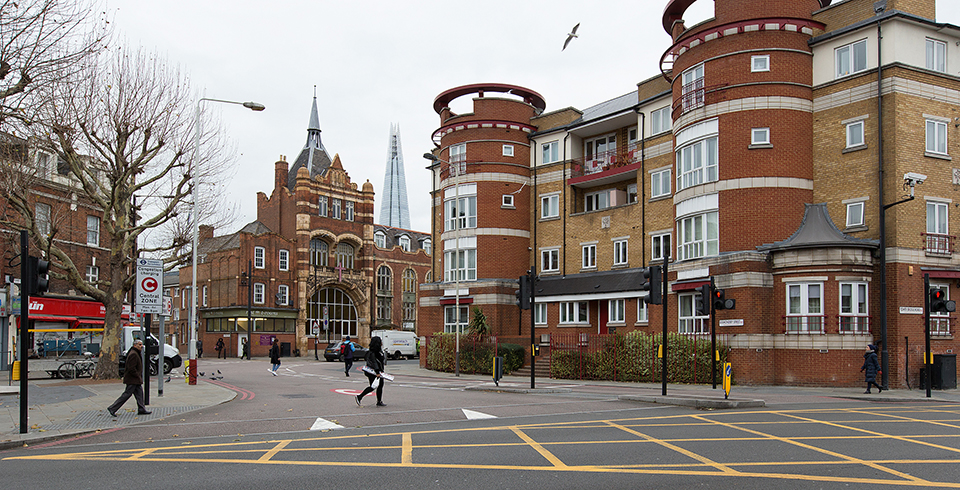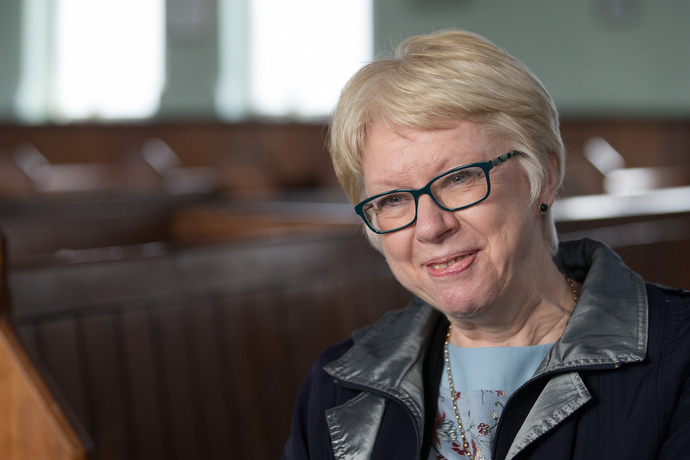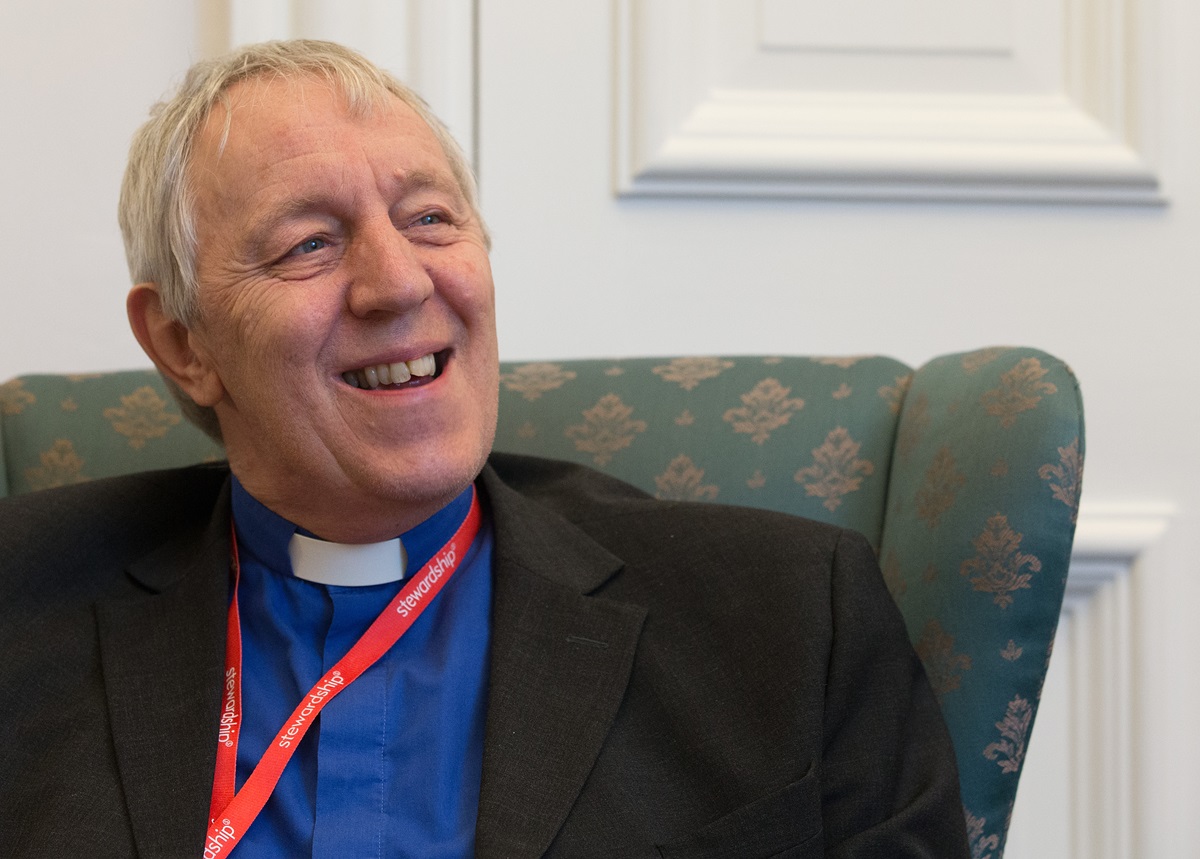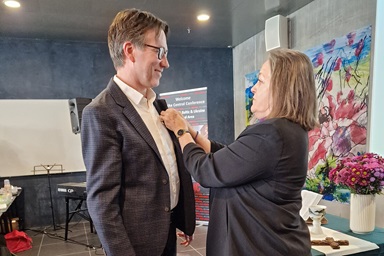Editor’s note: Part of an occasional series of stories, “British Methodism: Staying relevant in Wesley’s homeland,” about today’s Methodist Church in Britain.
While there is no quick fix for the British church’s deep membership decline, the Rev. Martyn Atkins knows what does not work.
“We mustn’t be naive enough to think that success for the British Methodist Church lies in how many old chapels you can keep up,” said Atkins, who has spent a number of years looking for ways to attract new disciples through the church’s “Fresh Expressions” program.
“It’s much more a case of, if you close a church, what new ministry are you going to open?” he asked. Instead of putting the money back in the pot to keep other buildings open, he advised, “Invest in people. Invest in ministry. Invest in ideas.”
British Methodism had more than 600,000 members in 1980. But that number had dropped to 188,000 worshipping in 4,512 local churches in the Statistics for Mission report submitted to 2017 Methodist Conference, with most members at retirement age.
British Methodism: Staying relevant in Wesley's homeland
 Bermondsey Central Hall Methodist Church serves a diverse congregation of about 320.
Bermondsey Central Hall Methodist Church serves a diverse congregation of about 320.
How to stay relevant in a secular society? That's the challenge for the Methodist Church in Britain as its membership dips below 200,000.
Read more stories in our series on the Methodist church in England.
It’s time to take radical steps to change the culture.
That’s the call that the Rev. Loraine Mellor, the Methodist Conference president for 2017-18, has taken up as she has encouraged all local congregations to take a good look at themselves.
“She’s taken this thing just a little bit further and a little bit sharper by banging the drum, if you like, about choosing death or life,” explained Atkins, who called Mellor a great friend and straight-talking evangelical.
Describing British Methodism “at a crisis” but not yet “at the tipping point,” Mellor said that when she visits Methodist congregations she challenges them about their mission in three areas — worship, hospitality and disciple-making.
Worship must be God-focused and compelling enough to encourage people to go out as missioners and evangelists. Hospitality means helping visitors encounter God as well as enjoy community activities in church buildings throughout the week.
Most important, Mellor says, is a commitment to intentional disciple-making. “If we’re not making disciples, then we’re a club, not a church,” she said.
The Rev. Rodney Hill, who works to foster mission in the Manchester and Stockport District, has years of experience with the live-or-die questions facing churches and makes presentations on “how to close a church well.”
In the past, the record of a church closure might be marked “failed,” he pointed out, but that blunt assessment did not take into account “the thousands of lives” blessed by that church. “In many instances, it’s a case of mission accomplished,” he said.
Hill noted that the Methodist Conference endorsed Mellor’s sharp focus on each church having a growth plan or end-of-life plan. The denominational council has been working on the details.
While some congregations may fear that the circuit or district will decide on its own to close a church, “constitutionally, that can’t happen,” he said. “It’s a self-identification process, not a kind of external inspection.”

Michael Pryke is youth president of the Methodist Church in Britain. Photo by Mike DuBose, UMNS.
For clergy who oversee a church closing or its transition to a new ministry, “the No. 1 concern is always the pastoral care of the existing congregation,” Hill said. Part of his role is to offer expertise and support.
The danger is that congregations “all too often” hold off decisions until it’s too late to consider alternatives to closing the building. Any project that involves shifting a church to a new ministry takes time to do well. Five years is optimal, in Hill’s opinion.
In Stockport, for example, one church has decided to accept the offer of another congregation to plant a new group in its building. And, in Manchester, two churches are trying to figure out how to hand over their buildings to another denomination, so a Christian presence remains.
“Both of those are strategies to say we recognize God has a ministry in this place even if we can’t do it,” he explained.
The bright spot is that new ministry is happening. During Hill’s five years in the Manchester and Stockport District, six buildings have closed, but four new congregations have formed.
“That is another part of the story and an important part of the story,” he said.
Another bright spot is that despite the fact that British Methodism remains “quite top heavy” with older-generation membership, some youth are showing interest in the church again, said Michael Pryke, the denomination’s 18-year-old youth president.
Last fall’s annual youth conference, called “3Generate,” had 1,000 participants aged 8 to 23 years, compared to 200 just five years ago. “Because it’s expanded so much we’ve had to move venues again,” he said.
Shaped by young people for young people, 3Generate is “a chance for young people to express their opinions towards the church,” he explained. And the church appears to be listening, he said, as issues raised by the youth assembly are later discussed when the Methodist Conference meets.

Gill Dascombe, who lives in northern England, is a lay preacher in the Methodist Church in Britain and a former vice president of the Methodist Conference. Photo by Mike DuBose, UMNS.
Raised in the church, Pryke belongs to Barn Hill, a congregation of 150 in Stamford, Lincolnshire, with a “vibrant youth culture.” The key to his involvement: “We have the world’s greatest youth worker, in my opinion, and he’s really helped me grow in my faith.”
The church has been the center of Gill Dascombe’s life, too, beginning with her father, a Methodist minister. “It always seemed to me that the message of Jesus Christ was good and that was the way to live,” she said.
Dascombe, who has forged her own role as a lay preacher, has witnessed the decline in church attendance. But, she noted, “the shape of the church has changed an awful lot … the scope of things that we do in church has increased.”
While serving as vice president of the British Methodist Conference from 2014 to 2015, Dascombe said she often saw small congregations in old buildings who “decided to radically change what they were doing.”
In Hull, for example, a chapel that had only six members joined forces with the next Methodist church in the circuit, emptied their own building of pews and other religious trappings and created a community drop-in center, offering clothing, a food bank, debt counseling and activities such as gardening and craft groups. The vestry was retained as a small worship area.
A retired hospital pharmacist, Dascombe also is pleased that local mental health service providers also have been able to connect their clients with church-run community programs, such as those at Wharton and Cleggs Lane Church in the Greater Manchester area. The connection makes the volunteers part of the enterprise “and helps to get rid of that stigma,” she explained.
Such examples of community interaction illustrate the theology of servanthood, she said.
Dascombe believes there’s no good in pretending the Methodist Church in Britain is a big organization able to wield major influence. “And maybe that’s not a bad thing,” she said. “Maybe the church of Jesus Christ, isn’t about power, it’s about servanthood.”
Return to main story, Diversity leads to growth for London churches.
Bloom is assistant news editor of United Methodist News Service and DuBose is a photographer for United Methodist Communications. Contact them at (615) 742-5470 or newsdesk@umcom.org. To read more United Methodist news, subscribe to the free Daily or Weekly Digests
Like what you're reading? Support the ministry of UM News! Your support ensures the latest denominational news, dynamic stories and informative articles will continue to connect our global community. Make a tax-deductible donation at ResourceUMC.org/GiveUMCom.




